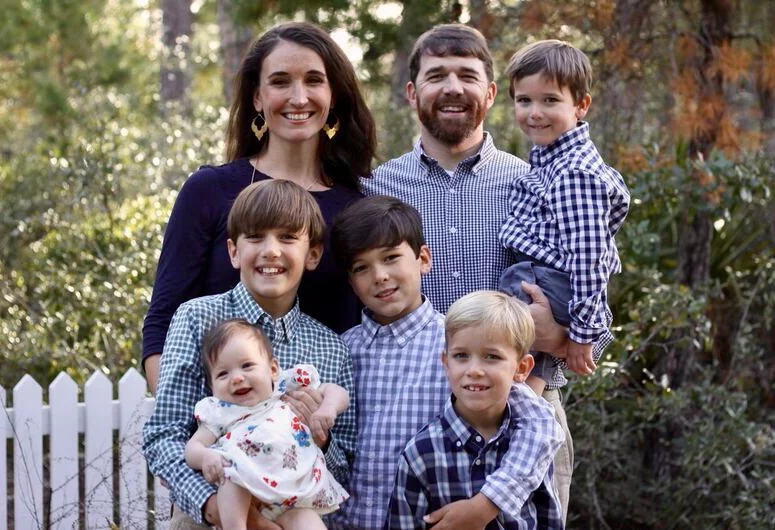
Big Ministry in Small Places: One Pastor’s Reflections on Seeing the Gospel Take Root in a Small Town
Nestled between two mountains in Appalachia and tucked away in the furthest northwest corner of the state of Georgia lies a peculiar little area called Dade County. Originally established in 1837, Trenton (the county seat) began as a mill town inhabited primarily by working-class people. According to a 2020 census, there are 2,195 residents in Trenton and 16,251 in the entire county.
For the first century of Dade County’s existence, no road connected it directly to the rest of Georgia. Visitors from elsewhere in the state had to reach it by way of Alabama or Tennessee. For some, Trenton would no doubt be seen as a pass-through town, a place you’d drive through on your way to somewhere “more important.”
But for Hutch Garmany, Trenton is a place filled with men and women who have been created in the image of God, a place that needs the gospel of Jesus just as much as any other city. And for Hutch, the town is more than even that—it’s home.
“Life in ministry in a small town can be a really fulfilling experience,” said Hutch, the Senior Pastor at Grace Community Church. “I think there’s an idea out there that small towns are backwards, they’re places of gossip, and they’re just the kind of place that you get stuck in rather than you choose to go to. I’d want pastors to know that this can be an incredibly fulfilling place to serve God. And they’re places that need the gospel, just like the city or the suburbs.”
From Small Town Kid to Small Town Pastor
Hutch Garmany grew up in a small town in northwest Georgia called Chickamauga. Though he didn’t grow up in a Christian family, he was around religion a lot.
According to him, Chickamauga is “a typical Bible belt kind of town” where there are churches on every corner. Growing up, his idea of Christianity was essentially be a good person and you’ll go to heaven when you die. He came to faith in Christ as a senior in high school and in college got involved with Cru, the well-known campus ministry.
After graduating from Reformed Theological Seminary in Orlando, FL, Hutch was called to Rock Creek Fellowship on Lookout Mountain, GA, as Assistant Pastor of Discipleship. He had spent five years on staff when he started sensing God calling him to plant a church in a small town. In February 2015, Rock Creek sent Hutch to plant Grace Community in Trenton, GA—a little over 20 miles from where he grew up.
“I really had a heart for small towns, especially just this whole dynamic of having lots of religion in small towns but not a lot of gospel clarity or gospel-centered churches. And it’s always really disturbed me because as I came to understand the doctrines of grace in college, I was struck by the reality that this was nowhere in my hometown. I never heard this. So that became a burden for me, just caring about small-town places where there’s a lot of religion but very little gospel.”
Life and Ministry in a Small Town
Over the years, Hutch and his family have come to deeply love Trenton and its people.
“One of the things I love about this little community is that people really do life here. It’s not a bedroom community of a larger place. This is a place where people deeply love this community. A lot of people are from here, and they stuck around. It’s a place where everybody knows everybody. It’s a place where if somebody is in need, people rally in really impressive ways.”
He also noted that among young seminarians and church planters, small towns are often neglected for bigger, flashier locations.
“In the church planting world, there’s so much emphasis right now on cities,” said Hutch. “And I think that’s great. But what’s been forgotten is small towns. And most people in small towns are used to people coming for a short period of time. It’s like a stepping stone. In these small town churches, if they get a gifted pastor, they know this guy is going to be looking to go somewhere that matters.”
“The thing that I’ve experienced here is just how rewarding and satisfying it can be to come to a place, to put down roots, and to really give yourself to a place. And one of the real positives about a small town from a ministry aspect is that you can see impact taking place in a shorter amount of time.”
“If you want to go change a city, it takes a long, long time,” said Hutch. “It takes a lot of churches and entities coming together to change a city, but you can have an impact on a small place in a relatively short amount of time. And I don’t think a lot of ministers or churches think about that or just how much of a wonderful place a small town can be.”
Since they’ve planted the church, Hutch and his team have seen a significant amount of fruit.
“We’ve seen folks come to Christ. We’ve seen the church grow. We planted the church with a core group of about 30, and right now we’re probably around 150 in attendance on a good Sunday.”
Small Town Ministry Challenges
But ministering in a small town is not without its challenges, says Hutch.
“Things go slower and people take longer to make decisions. If you’re in a city, you might meet somebody, invite them to your church, and they might come and check it out. In a small town, people are slower to do something like that. It’s almost tribal in the sense that people are often resistant to checking out a new church because their family has been Baptist or Pentecostal for a long time. And so relationships take longer, but they’re deeper and they’re more committed once they come.”
Another huge challenge, especially in the South, is the prevalence of nominal Christianity.
“You’re ministering in a place where everyone professes to be a Christian, whether they are or not,” said Hutch. “Everyone has had some experience of Christianity. So it’s a little post-Christian in that way. A lot of people here have been de-churched. So, most of the unchurched people here profess to be believers. But if you were to tell them, ‘I’m not sure you’re a believer,’ they would be deeply offended because it’s such a cultural identity..”
“There’s a lot of people who will go to church on Sunday, but it has no bearing on their life at all. And they don’t see any conflict with that. But on the positive side, you’re also ministering to a lot of what you might call ‘God-fearers.’ They’re not believers, but they have a sense of respect for religion or for a preacher or for a church.”
But despite the obstacles, Hutch says doing ministry in Trenton has been an incredibly rewarding experience.
“When we came here, it was our heart to reach the working class with the doctrines of grace. And that was really my heart—can we take this incredible theology we have in the PCA and bring it to this place. It’s certainly been challenging, but it’s been something that we’ve been able to see God do.”
— — —
For more helpful content and resources on this topic, including gatherings, books, and seminars, visit the Administrative Committee’s Small Town and Rural Ministry Resources page.


